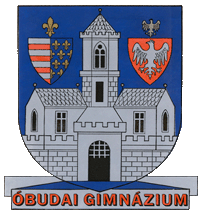
SUMMARY 2018
Internationalization of Óbudai Secondary School in order to support teacher competencies
The context/background of the project
The goal of Óbudai Secondary School is to train students to acquire European and multicultural value systems through their studies. Our teachers therefore actively participate in forming these value systems by keeping Hungarian culture and other traditions’ value systems in the forefront of their teaching by incorporating the presentation of eastern and western languages and their cultures in the curriculum. We worked out a project which trustworthily followed previous years’ Erasmus+ projects and made it possible to link them to future ones in order to set an example of life-long learning for our students and colleagues as well. This way we can ensure our language teacher’s professional renewal and mental refreshment in the long run.
The aim of the project
We aimed at developing colleagues’ language use, cultural awareness, and teaching methodology through the mobilities, so that they can pass on professional renewal to other colleagues with their mental refreshment and sharing good practices they acquired. Thus we hope to incite their implicit motivation to take a chance at broadening their own experience in the future as well.
Professional background of the participants
Six colleagues participated in this project, one Mathematics teacher, one P.E. teacher, the others being English and German as a foreign language teachers. It was as as a result of our previous Erasmus+ projects that non-linguistic teacher colleagues also dared to take this form of professional and personal development.
Description of implemented activities
In order to get a full picture of the effect of the mobilities and also about the areas to be improved in the future beside of participating in the project’s courses we carried out psychological immunity measurements, teacher self-assessment and attitude tests, as well as student satisfaction measurements. We presented the experience of the mobilities to our students, their effects on us, and how this experience influenced or changed our work at home afterwards. Moreover, we expanded our professional relationships, so that later on we can perform successful student exchanges. Last but not least, in order to develop intercultural competence we worked out short, practical activities that can perfectly help improve the students to cooperate and to accomplish well in an international environment in the future.
Achieved results and effects
Every colleague finished the project with a strengthened psychological immunity. There is a clear link between the mobilities and enthusiasm, willingness to fight and in maintaining a proactive attitude. By the end of the project we strengthened students’ self-confidence who thus have more advanced personalities in terms of intercultural and emotional intelligence. In the future an area to improve is the involvement of online platforms in the follow-up, like the e-Twinning portal. Acquired good activities can be practiced in a digital form, and also new activities can be worked out on these platforms which stand close to the learning forms of today’s student generations.
Long term advantages
The most important long term advantage of this project was that it raised awareness of the existence and opportunities of the Erasmus+ program among colleagues from other specialties than language teaching. An opening process has started within the circle of colleagues who have uncertain language knowledge, but now they are starting to believe that with suitable and planned preparation they can meet the challenges of such a project in the future, and what is more, they see how much they can develop in the process. They are now willing to experience the hardships of change that goes with improvement and development and are ready to face challenges.
